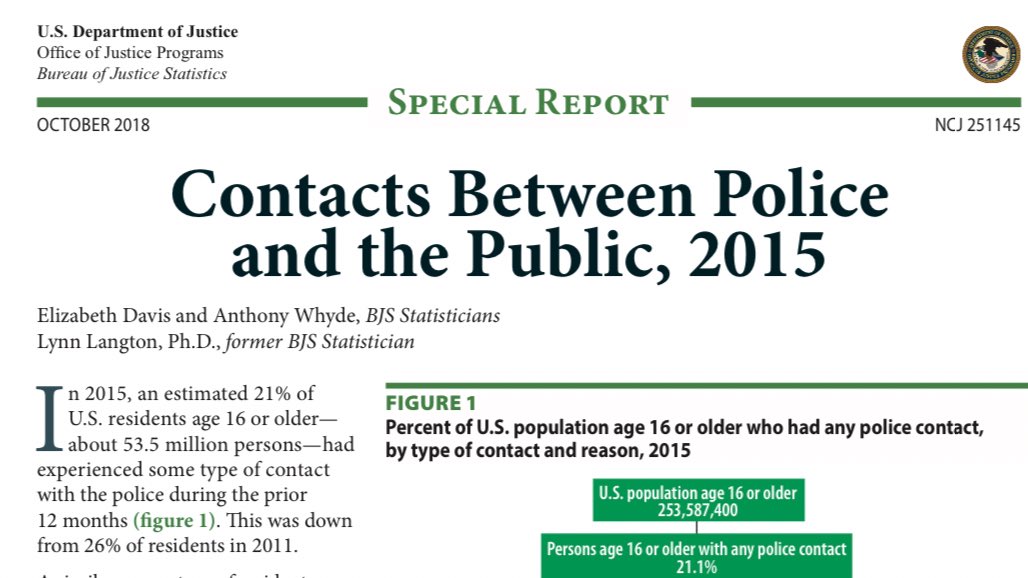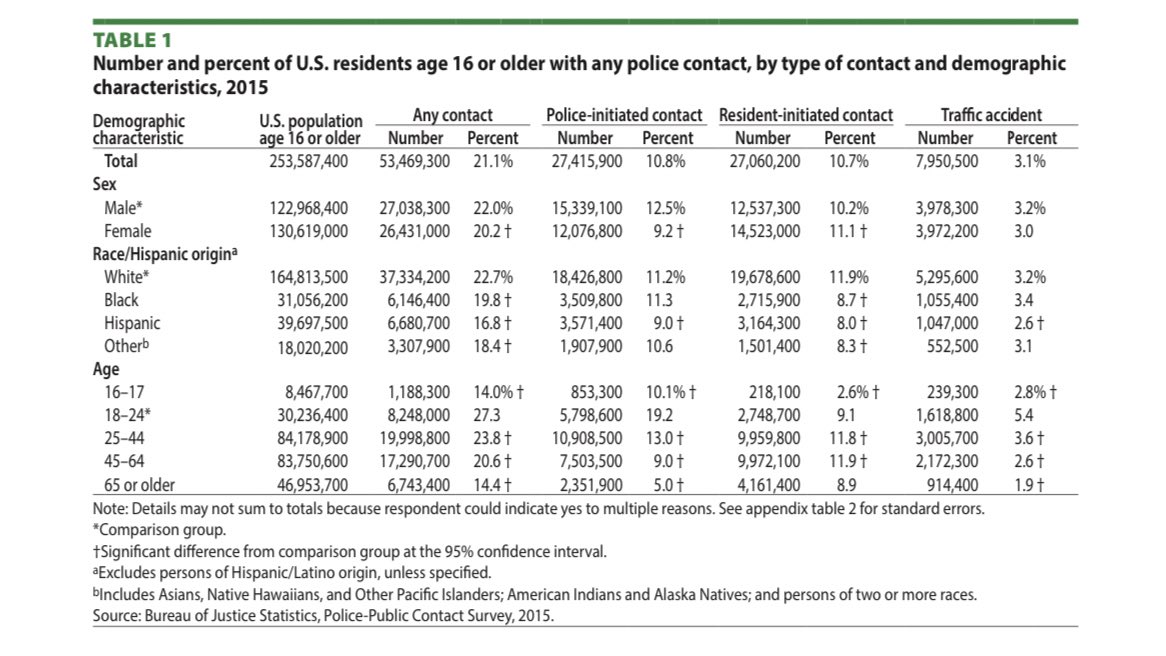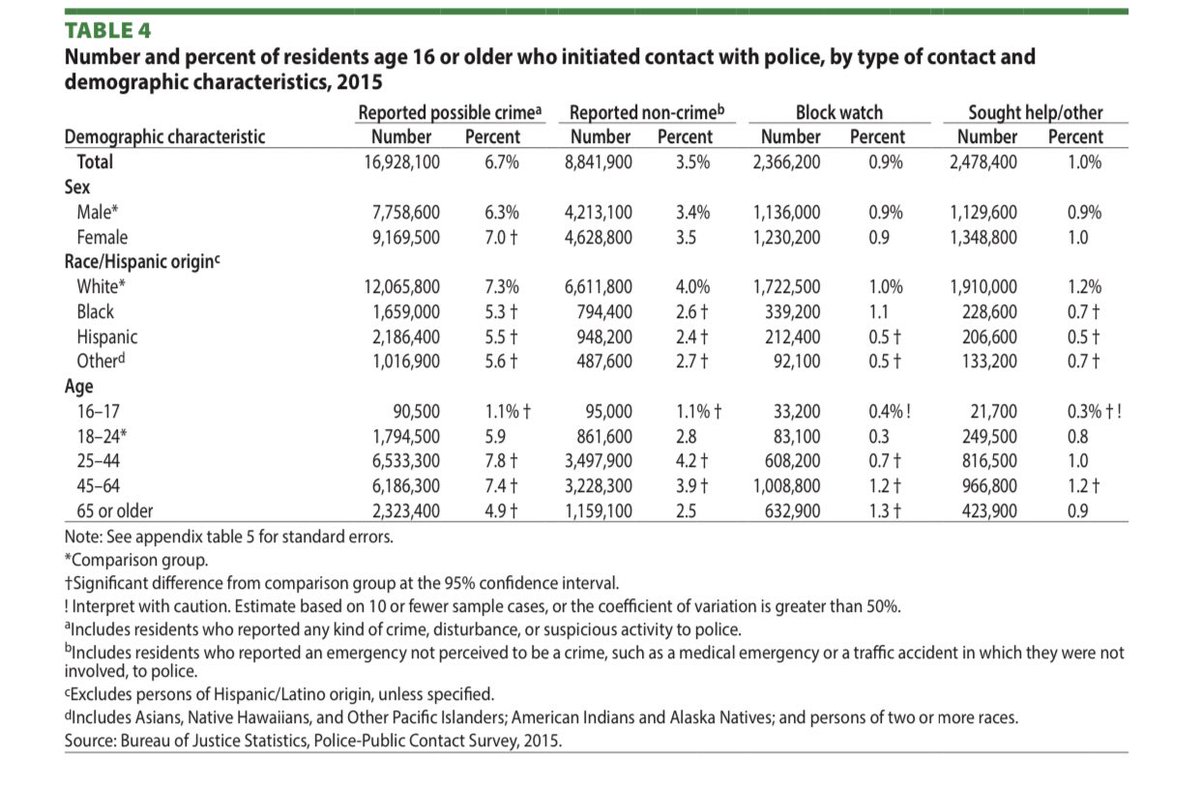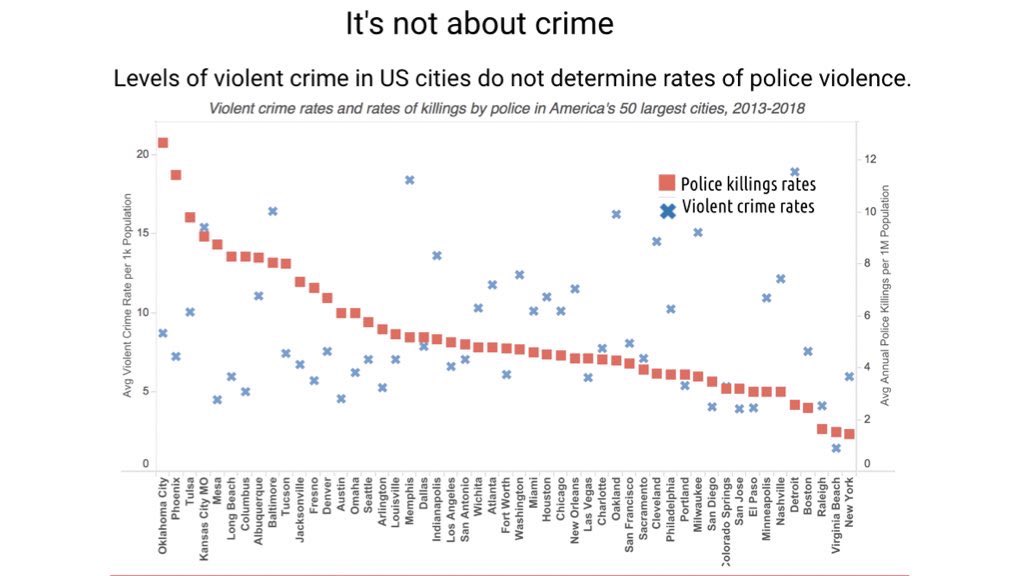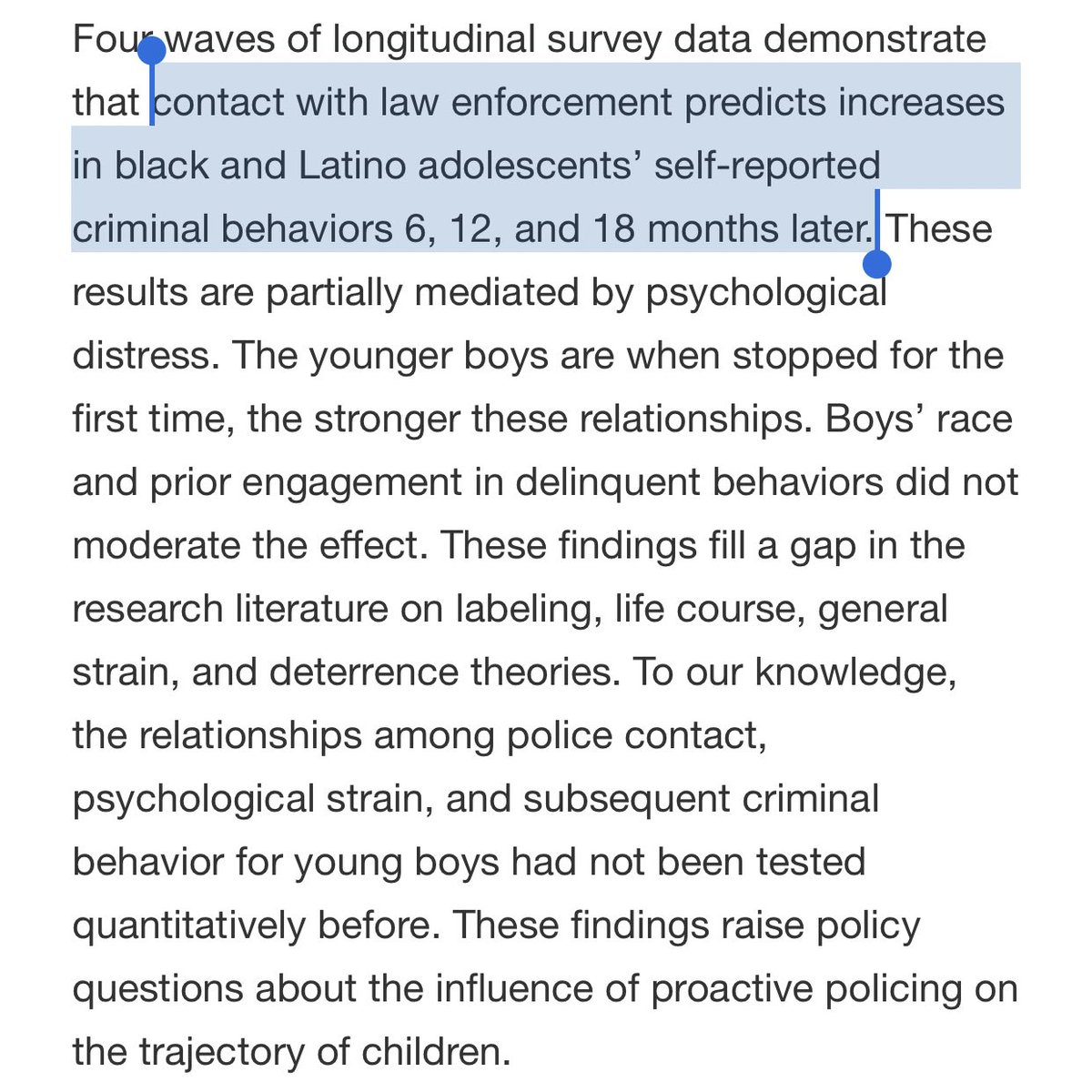
Let’s talk about what the latest research tells us about police violence. A thread. (1/x)
https://twitter.com/owasow/status/1360077066234859523
There’s growing evidence that there has been a substantial decline (~30-40%) in police shootings/killings *in major cities* since the protests started in 2014. I’ve written about this here. But WHY the reduction in cities and why not other places? Well... fivethirtyeight.com/features/polic…
Now this is where it gets complicated. Because the places that saw the biggest reductions in police violence seem to share a set of common factors, some of which might’ve contributed and others which might not have. For example...
The places that had larger reductions in fatal police violence had more protests. And these places also implemented body cams. And reduced arrests for low level offenses. And these places also tended to adopt a range of other policy changes (use of force, oversight, etc).
These are all likely related. Protests forced cities to make policy (and social/cultural) changes to policing practices that effectively reduced police violence. But *which* specific changes made the biggest difference is the subject of a lot of debate.
That debate is constrained by lack of data on police use of force (especially nonfatal force) and on police policies. For example, we know when thousands of cities adopted body cams because this is a question on the federal LEMAS survey. Not every policy makes it into the survey.
Since many policing practices aren’t tracked by the federal govt, activists and journalists had to build these databases. For example, there wasn’t a database of use of force policies or police union contracts until we built one in 2016. Can’t evaluate what isn’t being tracked.
• • •
Missing some Tweet in this thread? You can try to
force a refresh

